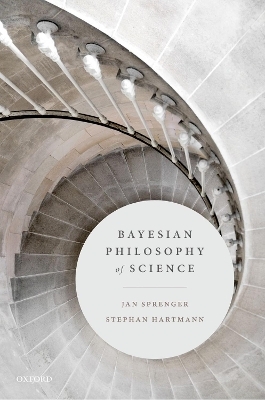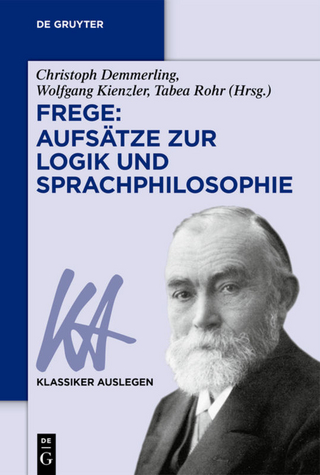
Bayesian Philosophy of Science
Oxford University Press (Verlag)
978-0-19-967211-0 (ISBN)
How should we reason in science? Jan Sprenger and Stephan Hartmann offer a refreshing take on classical topics in philosophy of science, using a single key concept to explain and to elucidate manifold aspects of scientific reasoning. They present good arguments and good inferences as being characterized by their effect on our rational degrees of belief. Refuting the view that there is no place for subjective attitudes in 'objective science', Sprenger and Hartmann explain the value of convincing evidence in terms of a cycle of variations on the theme of representing rational degrees of belief by means of subjective probabilities (and changing them by Bayesian conditionalization). In doing so, they integrate Bayesian inference--the leading theory of rationality in social science--with the practice of 21st century science. Bayesian Philosophy of Science thereby shows how modeling such attitudes improves our understanding of causes, explanations, confirming evidence, and scientific models in general. It combines a scientifically minded and mathematically sophisticated approach with conceptual analysis and attention to methodological problems of modern science, especially in statistical inference, and is therefore a valuable resource for philosophers and scientific practitioners.
Jan Sprenger is Professor of Philosophy of Science at the University of Turin. After completing an undergraduate degree in mathematics, he obtained his PhD in Philosophy at the University of Bonn in 2008. He then took up a post at Tilburg University, first working as Assistant Professor (2008-13) and subsequently as Full Professor (2014-17). He also directed the Tilburg Center for Logic, Ethics and Philosophy of Science (TiLPS). Sprenger's research and publications span a wide range of topics, mainly in philosophy of science and uncertain reasoning, but also in logic, group decision-making, and empirical work on human cognition. Stephan Hartmann is Professor of Philosophy of Science at LMU Munich, Alexander von Humboldt Professor, and Co-Director of the Munich Center for Mathematical Philosophy (MCMP). Between 2007 and 2012 he worked at Tilburg University, where he was Chair in Epistemology and Philosophy of Science and Director of the Tilburg Center for Logic and Philosophy of Science (TiLPS). Prior to this, he was Professor of Philosophy at the London School of Economics and Director of its Centre for Philosophy of Natural and Social Science. He was President of the European Philosophy of Science Association (2013-17) and President of the European Society for Analytic Philosophy (2014-17). Hartmann's primary research and teaching areas are philosophy of science, philosophy of physics, formal epistemology, and social epistemology. His current interests also include the philosophy and psychology of reasoning and argumentation.
1: Theme: Bayesian Philosophy of Science
2: Variation 1: Confirmation and Induction
3: Variation 2: The No Alternatives Argument
4: Variation 3: Scientific Realism and the No Miracles Argument
5: Variation 4: Learning Conditional Evidence
6: Variation 5: The Problem of Old Evidence
7: Variation 6: Causal Strength
8: Variation 7: Explanatory Power
9: Variation 8: Intertheoretic Reduction
10: Variation 9: Hypothesis Testing and Corroboration
11: Variation 10: Simplicity and Model Selection
12: Variation 11: Scientific Objectivity
13: Variation 12: Models, Idealizations and Objective Chance
Conclusion: The Theme Revisited
| Erscheinungsdatum | 16.08.2019 |
|---|---|
| Verlagsort | Oxford |
| Sprache | englisch |
| Maße | 161 x 240 mm |
| Gewicht | 780 g |
| Themenwelt | Geisteswissenschaften ► Philosophie ► Logik |
| Mathematik / Informatik ► Mathematik | |
| Naturwissenschaften | |
| ISBN-10 | 0-19-967211-3 / 0199672113 |
| ISBN-13 | 978-0-19-967211-0 / 9780199672110 |
| Zustand | Neuware |
| Haben Sie eine Frage zum Produkt? |
aus dem Bereich


